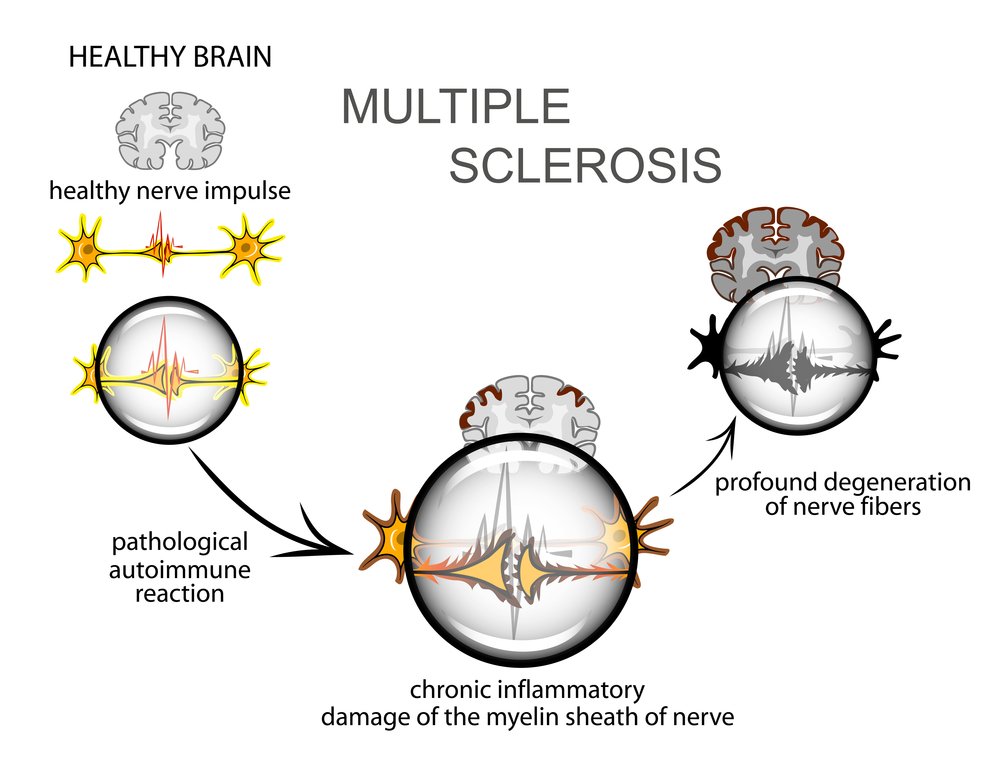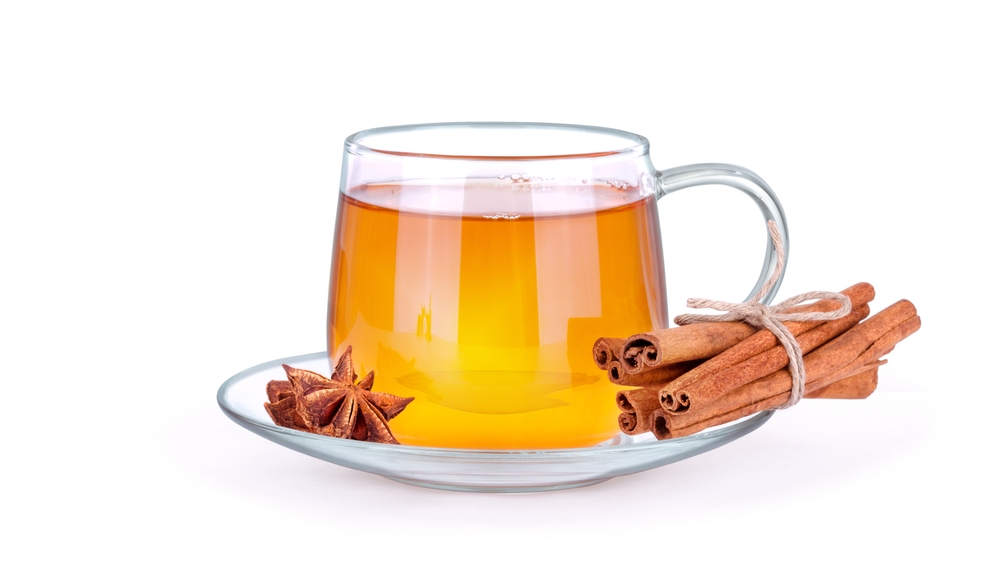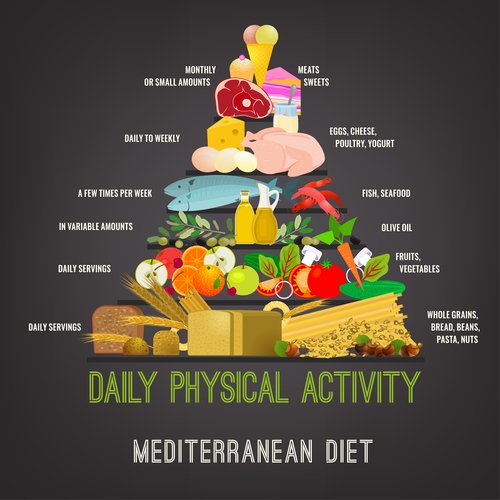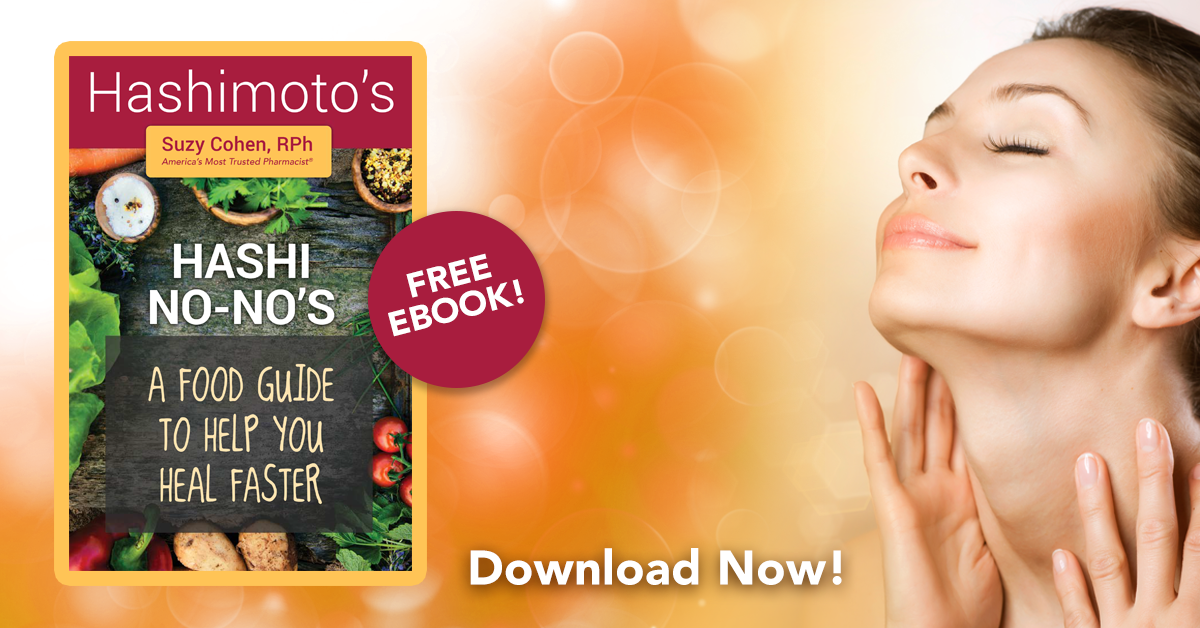What's On This Page?
ToggleThe pain associated with autoimmune diseases is very difficult to treat. Nerve pain is one of the most difficult, tragic types of pain a person can experience and it’s common in multiple sclerosis or MS for short.
Nerve pain is termed “neuropathy” and it’s one of those syndromes that is difficult to have real compassion for until you feel it yourself. It’s really hard to fathom.
Neuropathy can be one of the most challenging pain syndromes that people with multiple sclerosis experience, and likewise, one of the most difficult conditions to treat. I wrote about it in some prior articles that are archived on my website.
In fact, CLICK HERE to read one of them, Stop Nerve Pain in its Tracks. You can use my search box to find others. Here’s one of the most popular articles on a type of peripheral neuropathy called “Small Fiber Neuropathy.” If you have any kind of nerve pain read THIS.

Later in today’s article, I’ll reveal natural ways to help yourself. For example, I’ll tell you about cinnamon spice, a special mineral that does double duty by helping reduce thyroid antibodies and work on multiple sclerosis. Plus, I’ll share the recipe for a delicious pain-relieving tea. Hang on, I’ll discuss 7 intriguing solutions for your consideration very soon.
First, A little Info On Multiple Sclerosis
Multiple sclerosis is still poorly understood, even though there are treatments available. Physicians basically try to manage it, to keep it from progressing or to put it into remission. I do feel positive about helping you put it into remission. It’s possible especially if you know what is going on inside your body.
Up until now, you may haven’t completely understood what’s happening deep inside you so a minute or two to explain that is essential.
Many times an individual with multiple sclerosis thinks it’s a problem of myelin and focuses all efforts on producing myelin (to help wrap and coat the exposed nerves), but if you do that, you’re placing one piece of the puzzle in. While important, you’ll be missing the whole picture.
There’s a fire smoldering in your body, that’s why I am going to spend some time helping you to understand this is a head-to-toe disorder, just like every other autoimmune condition. If the topic of neuropathy interests you, please read my other post entitled, Small Fiber Neuropathy Causes and Treatment,
On that note, this is a good time to tell you not to eat too many fermented foods if you have an autoimmune condition (of any sort). CLICK HERE to read my article, Why You Shouldn’t Eat Leftovers or Fermented Foods.
There’s a fire smoldering in your body.
There is a complex array of problems occurring which include the loss of T reg cells and a breakdown of your intestinal barrier leading to more permeability and therefore, the leakage of undigested food proteins from casein and gluten. There’s a breakdown in the barriers that surround your brain and spinal cord.
Histamine goes up which adds to pain and inflammation. CLICK HERE to read my article on histamine and autoimmunity one day. It’s called, Allergies and Your Genes – Histamine, Autoimmunity, and DAO SNPs.
Solutions Please!
I wish I had a cure for multiple sclerosis, but today I can only offer potential solutions and considerations. A little later, I will give you critical information on diet, supplements, and teas that can help you feel better right away. My suggestions should positively impact your brain and immune function, antibody levels, pain, balance, and more.
I’ve also included two Lab Tests below that will reveal the true state of your gastrointestinal function, which plays the biggest role in your immune function. Remember, something leaking out of your gut is getting into your brain and spinal cord because those barriers are compromised (leaky) and we know it.
What NOT to do
The research is there and we know it! In the meantime, let me tell you what NOT to do based upon two scientific articles/case studies that I read recently:
1. Don’t get pregnant just for Multiple Sclerosis Pain relief.
2. Don’t jump in cold water!
This begs so many questions, doesn’t it? Allow me to elaborate…
1. Don’t Get Pregnant Just For a Remission
For decades, physicians told women with multiple sclerosis that pregnancy could prevent relapsing, but that is very old news dating back to 1998. Even though it was widely accepted, 2017 research shows it isn’t true. In fact, a higher rate of relapses may be caused by women as they rebound from the medications.
It’s not like classic addiction and withdrawal… but experiencing a state of withdrawal from Disease Modifying Drugs (DMD) can be real and can cause fury and backlash in the body for some of you.
There are many medications in the DMD class, among them Interferons, Copaxone, Ampyra, Zinbryta, and others. These drugs are used to treat multiple sclerosis and there are others. The point is, don’t get pregnant just to keep multiple sclerosis at bay because the relapse rate during pregnancy is higher than everyone thought and certainly higher than published rates.
For years, physicians told women to get pregnant in order to get into remission, and women rushed into that… I’m saying times have changed and we’re not sure this is actually true according to THIS article.
This is right up there with jumping into very cold water as a method of pain relief.
2. Don’t jump into cold water!
So this really happened, it is just not a smart thing to do! Think two steps ahead, please. For those of you interested, the conclusion that ‘cold water relieves pain’ was based upon one man so n=1. What I’m saying is the number of participants was one!
That should tell you something right there!
So to be clear, we have a case study that includes a participant of ONE… a 28-year-old who used to be a competitive open-water swimmer (ie very used to cold water swimming) unlike all of you.
He had some personal (cosmetic-like) concerns, so he opted for a surgical procedure to curb his excessive facial flushing. He had a procedure called Endoscopic Thoracic Sympathectomy.
He should have healed within a couple of weeks from the standard procedure. But 10 weeks after his surgery, he was still in severe pain. He was heavily medicated (which in my opinion impaired his judgment lol). Long story short, one day, he jumped off a rocky cliff into extremely cold coastal waters. It was a place where he used to jump and swim competitively.
According to the case study, he did this for the mere distraction, not anticipating any benefits! He missed his old life. I wish he’d taken a selfie because I don’t really believe this crazy story, nevertheless, the case study is in a reputable journal, so I’m going with it. There are other articles suggesting cold water immersion, but I’m not for it as it pertains to multiple sclerosis.
As it turns out, his pain instantly retreated and it never came back.
Whaaaat on Earth?!
Nerve pain is difficult to treat, that’s why multiple sclerosis is so hard to treat. We are experiencing an opiate epidemic so any option for pain relief catches my attention. None of his doctors understand why swimming in cold water broke his cycle, but obviously, it did. Clearly, it reset something in his sympathetic (and central) nervous system and blunted all the pain signals.
The authors of the case study on the 28-year-old man said his reduced mobility (from the surgery and ensuing pain) might have locked in his pain, so it was relieved when swam and thus broke the cycle. I don’t think so personally. A cold water plunge might succeed where painkillers fail, but it’s not for everyone, and it’s not for all types of pain.
I want it noted in black and white font, that this young man did not have multiple sclerosis, but he did have chronic, unrelenting nerve pain similar to what MS sufferers have. His reflexes were fine, he had a history of swimming in cold water.
Could the mere fun of it have cured him? Sometimes enjoying your life and having a pleasant focus allows you to distract from the pain or all the negative.
If I did what he did, for sure, it would have knocked me out and then I’d have drowned. Probably the same for you. Yeah, I’m saying don’t test the waters! If you want to try a hypothermic chamber with a trained physician, that is an up-and-coming treatment to reset the mitochondria. They’re called cryo saunas, or cryo chambers. You can investigate that, but don’t go jumping off a cliff!
Now for some reasonable and intriguing solutions to help with MS and nerve pain.
7 Intriguing Solutions for Multiple Sclerosis and Pain

1. Cinnamon Spice
An animal model study found how cinnamon could reduce the nasty pro-inflammatory compound IL-17 produced by Th-17 cells. This is another compound similar to TNF alpha which attacks the brain and nervous system.
This finding is huge and it was from cinnamon, not some two thousand-dollar DMD drug!
We also know the painful symptoms of multiple sclerosis occur -in part- from demyelination causing a failure in the conduction of electrical impulses, it’s like a cord that you plug into the wall, but the cord is missing the outer coating… so you can see the wires inside. It hurts!
Cinnamon treatment “remarkably restored myelin” according to the study published in the Journal of Multiple Sclerosis. The spice protected genes in charge of myelin production (in mice). Cinnamonum verum was the preferred type of cinnamon used in the study, and upon ingestion, the naturally present “cinnamaldehydes” were converted to cinnamic acid. In the liver, researchers saw how this cinnamic acid got oxidized to benzoate. It exists as sodium benzoate which is abbreviated as NaB, short for benzoyl-CoA.
This next part is important. A tiny amount of NaB comes out in human urine. In mice, it was demonstrated that eating cinnamon (specifically ground Cinnamonum verum) increases the level of NaB in both serum and brain tissue.
Why is this of clinical significance?
Because NaB is a component of Ucephan, an FDA-approved drug, used in liver disorders such as hyperammonemia, a urea cycle disorder. It begs the question, “Is ammonia overproduced in multiple sclerosis too?”
It’s a good question, because if ammonia is involved in multiple sclerosis then we have a new target to focus on. High levels of ammonia cause pain.
Cinnamon plays an important role in reducing neuroinflammation, so in my book, it’s a perfect spice to eat if you have dementia, memory problems, Alzheimer’s disease, Parkinson’s, or just want to protect the nigrostriatal tissue (for instance, you are in opiate withdrawal or recovery).
Cinnamon can suppress NFKB and help with cholesterol as well. While not curative, it certainly is a spice worth trying, and it’s so easy to sprinkle on your favorite foods and beverages.
I would be remiss if I didn’t mention that cinnamon is best known in the holistic world for its ability to reduce blood sugar. This discussion of cinnamon leads me to the next intriguing tip. It’s a diet that could help if you have MS. If you CLICK HERE you can read, Prospects of Cinnamon in Multiple Sclerosis.
2. The Mediterranean Diet
Just take me to Greece! The Mediterranean diet is famous for heart health, not MS but I’m about to change all that. We already know that the Mediterranean diet correlates with reduced bad (oxidized) Low-Density Lipoproteins (LDL) which are the kind most likely to build up and block your arteries. I also like a keto-friendly diet by the way.
A meta-analysis study of more than 1.5 million healthy adults proved that eating the Mediterranean way, was in fact, associated with a reduced risk of a heart attack. Great, but again, this type of diet is good for multiple sclerosis which, if you recall is often accompanied by anxiety and depression.
It’s a fact that what you eat has a direct impact on your mood, levels of anxiety, and gastrointestinal health. What you eat has an impact on probiotics, as well as TNF alpha and other cytokines and all this impacts how relaxed, happy and well you feel.
If you have never heard this saying before, let me tell you: Your gut is your second brain!
Both your gut and your brain have a barrier, that when compromised allows toxins to leak in and hurt you.
The Mediterranean diet has been shown to cause reduced incidences of various types of cancer, and reduced risk for Parkinson’s and Alzheimer’s diseases, two disabling and currently incurable disorders.
We’ve also found that women who choose to eat a Mediterranean diet with a little more EVOO (Extra Virgin Olive Oil) and healthy nuts seem to have lower incidences of breast cancer. Intrigued? This diet is different than a Paleo diet because there’s less emphasis on red meat, the protein is primarily seafood, not a cow.
Unlike Paleo where butter is the staple fat, the Mediterranean diet calls for olive oil. It does include red wine, which I personally would NOT recommend too much of. I know, I know what I just said flies in the face of the Mediterranean diet, but there’s no way I’d ever recommend alcohol to you if you’re already hurting and experiencing demyelination from a serious autoimmune disease that causes chronic, unrelenting pain.
The free radical damage associated with alcohol (and high histamines that are tied to alcohol) will never be worth it. Histamines are elevated in multiple sclerosis by the way. So when I say eat the Mediterranean, I’d suggest you exclude the nightly red wine.
The Mediterranean diet is healing to the gut because it lacks the junk food so typical of the American lifestyle. It emphasizes plant foods. It emphasizes healthy fats like olives and olive oil. It includes lots of fresh fruits and vegetables. You will never feel restricted on this diet. You can’t help but lose weight on it, and improve gut health… which improves brain health! Remember, your gut is your second brain. Here’s a graphic to help you visually see the diet and shop for the right foods.

So if your gut is tantamount to brain health and your brain is involved in pain signals and in multiple sclerosis, it makes sense that you should eat foods that are anti-inflammatory in nature.
The Mediterranean Diet includes lots of cold-water seafood, organic fruits, vegetables, nuts, avocados, olives and whole grains. It limits dairy products, and processed foods as well as meat.
A Mediterranean diet will change the composition of your intestinal (gut) flora for the better but it will take months. Likewise, a diet of processed, refined junk food interferes with a good mood, energy and immune function.
There is even an ongoing study with 36 individuals enrolled and researchers are trying to determine if multiple sclerosis symptoms are impacted.
More specifically, if a person with multiple sclerosis eats according to the Mediterranean Diet for 6 months, will he/she enjoy a better quality of life? The results won’t be available until later this year, but I don’t want you to wait for what is common sense.
Neurodegeneration has to be impacted by nutrition. I am sure this diet is helpful because it improves healthy fats (lipids) which you need for myelin, and provides carotenoids for antioxidant protection. Besides, it is good for your heart which is probably taxed from all the medications you’re on.
3. Probiotic Supplementation
Studies have suggested that certain bad bacterial strains living in your gut contribute to the worsening of MS and other autoimmune conditions.
Healthy, friendly gut bacteria are known as “probiotics” when they come in supplemental form. We assume they only travel to the gut, however research shows that some small molecules might be capable of traveling to your brain and helping to control brain inflammation. That’s pretty remarkable so I do recommend probiotics for people with MS. We know that gut bacteria influence the degree of inflammation and neurodegeneration, which is an obvious issue for people with multiple sclerosis.
Harvard researchers studied this and found evidence that changes to your diet (and therefore gut flora) may influence nerve cells (the astrocytes) and consequently impact symptoms. This was groundbreaking in that it was the first time that researchers were able to conclude that food has a remote control on inflammatory cytokines in your brain and spinal cord! Probiotics improve gut health, and there are many to choose from.
It’s a good idea to do thorough gastrointestinal testing to screen for parasites, pathogenic bacteria, fungi, and more. These are great tests for overall GI function as well as microflora testing too!
4. Balance and Eye Movement Exercises
People with multiple sclerosis who do balance and eye movement exercises might feel more steady on their feet. The participants in this study were given computer-based eye movement and balance tests, as well as at-home tests where they had to practice balancing on different surfaces while walking, sometimes with head movements, or with eyes open and closed. The point is to improve visual stability. It’s a small study of 88 people, but still important. If you do this type of ‘exercise’ routinely, it could help with balance.
5. Selenium and Vitamin E
Selenium suppresses TNF alpha naturally. In a Finish study, blood from people with multiple sclerosis was evaluated and found to have lower amounts of selenium than healthy adults. In another study, RBC (red blood cell) levels of selenium were deficient in people with multiple sclerosis.
We know that this mineral is helpful for people with prostate dysfunction, as well as autoimmune thyroid conditions (like Hashimoto’s). It helps to suppress TPO antibodies in Hashi’s and has been shown to be helpful in Crohn’s disease which is another autoimmune condition. Just as an aside, if you have Hashimoto’s or any autoimmune disorder, and you’d like my free ebook, CLICK HERE.
Vitamin E (the real deal not synthetic versions) might be useful in suppressing TNF alpha, which is one of several pro-inflammatory cytokines. Vitamin E and selenium are loving brothers and sisters. So in my world, it’s not a stretch to think selenium could be useful for people with MS. A Finnish study from 1974 found that animals who were deficient in selenium were more prone to multiple sclerosis as well Muscular Dystrophy.
So because of this, I’ve included selenium here as a potential supplement, and of course, ask your doctor if it’s right for you. If you do supplement, I suggested the form Selenomethionine, not the synthetic sodium salt. Vitamin E is a fat-loving antioxidant that works with selenium, and it supports myelin health so again, these two are synergistic in nature. If you’re interested in high-quality versions of these nutrients, I sell them. You certainly don’t have to shop with me, lol, but if want to, just click above on the tab that says “shop.”
6. Green Tea (Camellia Sinensis)
I carry tea bags of green tea in my purse for the immune-boosting benefits! Just ask the waitress/waiter for a cup of hot water and you can enjoy it when you eat out. The extract from Green Tea called EGCG (epigallocatechin-3-gallate) has been shown repeatedly to profoundly impact your immune system.
It also controls the amount of damage done by TNF alpha which causes much pain. The article was something I read in 2015 when it was first published in The Journal of American Clinical Nutrition. You can look it up by this title if you want to read it, “Metabolic response to epigallocatechin-3-gallate in relapsing-remitting multiple sclerosis: A Randomized Clinical Trial.”
EGCG is just one of several catechins found in green tea. This particular compound has been shown to benefit patients with multiple sclerosis in many ways, but definitely by easing mental and physical fatigue. It works by improving muscle energy metabolism.
In the above study, it was particularly helpful for men. Green tea can help with neuropathy by relieving pain, reducing pain sensitivity, improving reflexes, and reducing oxidative stress. I can’t find a study specifically on Matcha, but it’s obvious that the results would have been even more profound since Matcha has a higher concentration of EGCG.
A PLOS One study in 2015, found two novel compounds in green tea could reduce pain specifically by reducing levels of a “synthase enzyme” which controls the reactions of nerves emanating from your spinal cord. Drink up! Just to be kind to your liver, don’t overdo the green tea. If it agrees with you, try one or two cups of tea per day, hot or cold. If it causes stimulation, don’t drink it too close to bedtime. The theanine will offset the small amount of caffeine, but everyone reacts differently to green tea so again, if it’s stimulating, don’t drink it after 5 pm.
7. Vitamin D
Vitamin D insufficiency is thought to be a contributing factor in the pathogenesis of multiple sclerosis, as well as autoimmune encephalomyelitis. We also know that vitamin D deficiency may occur due to genetic polymorphisms and this may also be a strong factor.
Vitamin D status positively influences patients with multiple sclerosis, in terms of their relapse rate as well as lesions visible through diagnostic imaging. I’m working on another article that is devoted entirely to vitamin D and multiple sclerosis. You can read it when it’s ready, if you’re signed up for my free newsletter, I’ll let you know when I’ve completed it, but it’s not ready today.
Final Words:
The multiple sclerosis pain relief solutions I’ve provided today can really go a long way in helping you with MS, especially over time. Please forward it and also remember, that there is always hope. Every month or two, we see new and exciting innovations for challenging disorders like multiple sclerosis.
Even as I type this, an email just popped into my inbox regarding the use of stem cells and how they may be useful for multiple sclerosis. It’s too soon to share that because it’s a very small study, and stem cell therapy is rather painful. I’m not ready to recommend that treatment, but my point is this: Hold on! Please have faith that we will soon have more solutions and better answers so that you can live with more comfort and less pain.
We might be able to find a solution that gets you up and out of that wheelchair too! I’ve seen it done with dietary changes in a few people. In the meantime, I wish you well and will keep studying this topic and bring new information to you as I have it.
CLICK LIKE to FOLLOW Suzy Cohen – Get Important Health Tips

Suzy Cohen, has been a licensed pharmacist for over 30 years and believes the best approach to chronic illness is a combination of natural medicine and conventional. She founded her own dietary supplement company specializing in custom-formulas, some of which have patents. With a special focus on functional medicine, thyroid health and drug nutrient depletion, Suzy is the author of several related books including Thyroid Healthy, Drug Muggers, Diabetes Without Drugs, and a nationally syndicated column.




